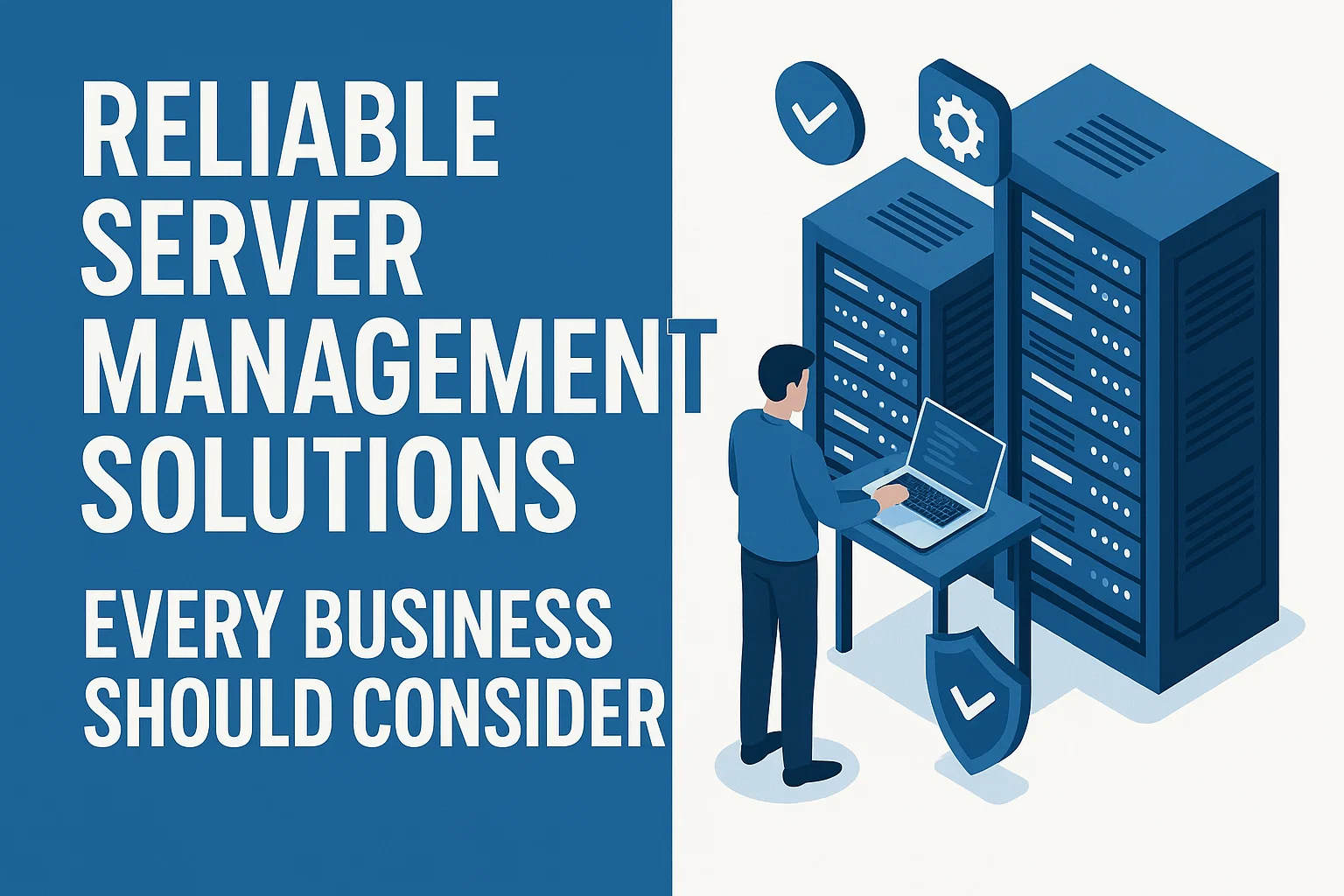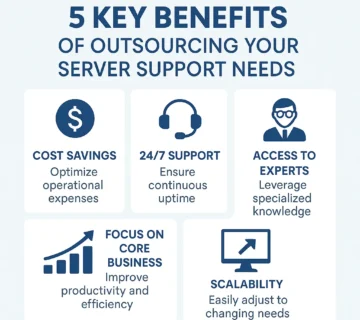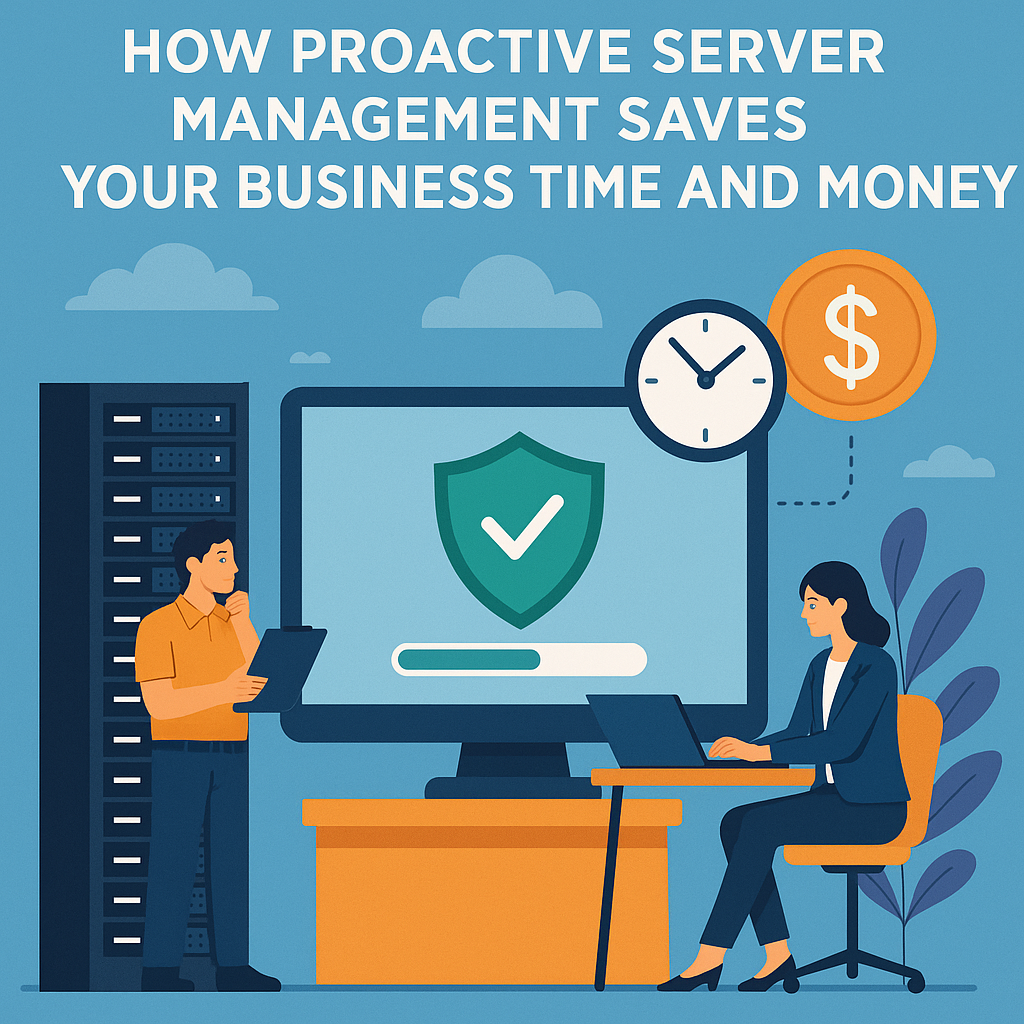Reliable Server Management Solutions Every Business Should Consider

Modern businesses depend on server infrastructure to keep operations running smoothly, store critical data, and deliver services to customers. Yet many organizations struggle with server downtime, security vulnerabilities, and performance bottlenecks that drain productivity and revenue. The right server management approach transforms these challenges into competitive advantages.
Server management encompasses the monitoring, maintenance, and optimization of physical and virtual servers that power business applications. Whether running on-premises hardware or cloud-based infrastructure, servers require constant attention to remain secure, performant, and available when employees and customers need them most.
Understanding the Foundation of Server Management
Effective server management goes far beyond simply keeping machines powered on. It requires a comprehensive strategy that addresses multiple technical dimensions simultaneously.
Server administrators must balance competing priorities like security hardening, performance optimization, capacity planning, and cost control. A single misconfigured setting can expose sensitive data to cybercriminals. Insufficient monitoring can allow small issues to escalate into catastrophic failures. Poor capacity planning leads to either wasted resources or unexpected outages during peak demand.
The complexity multiplies when managing hybrid environments that span on-premises data centers, public cloud platforms, and private cloud infrastructure. Each environment brings unique management challenges, security considerations, and operational requirements that must work together seamlessly.
Proactive Monitoring and Performance Management
Businesses that wait for users to report server problems have already lost the battle. Proactive monitoring systems continuously track hundreds of metrics across server infrastructure, identifying potential issues before they impact operations.
Modern monitoring solutions track CPU utilization, memory consumption, disk I/O performance, and network throughput in real time. Advanced platforms incorporate machine learning algorithms that establish performance baselines and automatically detect anomalies that fall outside normal operating parameters.
Alert systems notify technical teams immediately when thresholds are exceeded, allowing rapid response to emerging problems. The most sophisticated monitoring platforms correlate data across multiple servers and services, identifying root causes rather than just symptoms. This correlation capability proves invaluable in complex environments where problems in one system cascade to affect others.
Performance management extends beyond reactive troubleshooting to include capacity planning and optimization. Historical trend analysis reveals growth patterns that inform hardware refresh cycles and infrastructure expansion decisions. Load testing identifies bottlenecks before deploying new applications or during peak usage periods.
Comprehensive Security Hardening and Patch Management
Cybercriminals continuously scan internet-connected servers for vulnerabilities they can exploit. Every unpatched server represents a potential entry point for ransomware, data theft, or service disruption.
Effective security management begins with proper server hardening during initial deployment. This involves turning off any non-essential services, blocking inactive network ports, enforcing robust authentication practices, and setting up firewalls to ensure that only authorized traffic can access your systems.
Patch management represents one of the most critical yet challenging aspects of server security. Software vendors regularly release security updates that address newly discovered vulnerabilities. However, applying patches without proper testing can introduce compatibility issues or service disruptions.
Organizations need structured patch management processes that balance security urgency against operational stability. This typically involves testing patches in non-production environments before deploying to production systems during scheduled maintenance windows. Automated patch deployment tools streamline this process while maintaining consistent security postures across large server fleets.
Security management also encompasses continuous vulnerability scanning, intrusion detection systems, security information and event management platforms, and regular security audits. These layered defenses create depth that makes successful attacks significantly more difficult.
Automated Backup and Disaster Recovery Planning
Data loss can destroy businesses overnight. Hardware failures, software bugs, human errors, and ransomware attacks all threaten the information businesses depend on for operations.
Reliable backup strategies follow the 3-2-1 rule: maintaining three copies of data, stored on two different media types, with one copy stored offsite. Modern backup solutions automate this process, creating regular snapshots without requiring manual intervention.
Backup frequency must align with business requirements for recovery point objectives, which define how much data loss an organization can tolerate.Highly critical systems often need real-time or continuous data replication, whereas lower-priority systems can rely on scheduled backups performed once a day.
Testing backup integrity represents the most overlooked aspect of data protection. Organizations often discover their backups are corrupted or incomplete only when attempting recovery during an actual disaster. Regular recovery testing validates that backups work properly and that recovery procedures are well-documented and understood by technical teams.
Disaster recovery planning extends beyond backups to encompass complete system restoration. This includes documenting server configurations, maintaining hardware inventories, establishing relationships with equipment vendors for rapid replacement, and creating detailed recovery procedures that specify the sequence for restoring interdependent systems.
Virtualization and Resource Optimization
Physical servers typically utilize only a fraction of their available computing capacity. Virtualization technology allows multiple virtual servers to run on single physical machines, dramatically improving resource utilization and reducing hardware costs.
Virtual server environments provide flexibility that physical infrastructure cannot match. Organizations can roll out new servers within minutes instead of waiting weeks for deployment.
Workloads can shift between physical hosts to optimize performance or accommodate maintenance. Snapshots enable quick rollbacks if updates cause problems.
Container technologies like Docker and orchestration platforms like Kubernetes represent the next evolution beyond traditional virtualization. These technologies package applications with their dependencies, ensuring consistent behavior across development, testing, and production environments while enabling efficient resource sharing.
Effective virtualization management requires monitoring resource allocation across hosts, balancing workloads to prevent performance bottlenecks, and maintaining sufficient capacity for failover during hardware maintenance or failures. Virtual environment managers must also address unique security considerations, ensuring proper isolation between virtual machines and protecting hypervisor layers from compromise.
Cloud Integration and Hybrid Management
Cloud computing has fundamentally changed how businesses think about server infrastructure. Rather than purchasing and maintaining physical hardware, organizations can provision virtual servers on-demand from providers like Microsoft Azure, Amazon Web Services, and Google Cloud Platform.
Cloud infrastructure offers compelling advantages including rapid scalability, geographic distribution for disaster recovery, and consumption-based pricing that converts capital expenses to operational costs. However, cloud environments introduce new management challenges around cost control, performance monitoring across distributed systems, and ensuring security in shared infrastructure.
Many organizations adopt hybrid approaches that combine on-premises servers for sensitive workloads with cloud resources for scalability and disaster recovery. Managing these hybrid environments requires unified monitoring platforms, consistent security policies, and networking configurations that securely connect disparate infrastructure.
Multi-cloud strategies that leverage multiple providers add further complexity while reducing vendor lock-in and enabling businesses to optimize costs by selecting the best platform for each workload. Effective multi-cloud management demands expertise across different provider platforms and tools that provide visibility across the entire infrastructure landscape.
Access Control and Identity Management
Controlling who can access servers and what actions they can perform represents a fundamental security requirement. Weak access controls enable both external attackers and malicious insiders to compromise systems.
Role-based access control systems grant permissions based on job responsibilities rather than individual users. This approach simplifies administration while ensuring employees have necessary access without excessive privileges that increase security risks.
Multi-factor authentication adds critical protection for administrative access to servers. Even if credentials are compromised through phishing or credential theft, attackers cannot access systems without the secondary authentication factor.
Privileged access management solutions provide additional controls for highly sensitive administrative accounts. These tools require approval workflows for privileged access, record all administrative actions for audit purposes, and automatically revoke access after specific time periods.
Regular access reviews ensure that permissions remain appropriate as employees change roles or leave the organization. Orphaned accounts with outdated access represent significant security vulnerabilities that access reviews help identify and remediate.
Configuration Management and Standardization
As server environments grow, manual configuration becomes error-prone and inconsistent. Configuration management tools automate the process of applying consistent settings across server fleets.
Infrastructure-as-code approaches treat server configurations as version-controlled software. Changes are documented, reviewed, and tested before deployment, reducing errors while creating audit trails for compliance purposes.
Standardized server images ensure new systems start with approved configurations that include proper security hardening, required software packages, and organizational standards. Image-based deployment dramatically reduces provisioning time while improving consistency.
Configuration drift occurs when servers gradually diverge from intended configurations through manual changes and updates. Configuration management platforms continuously monitor for drift and automatically remediate discrepancies, maintaining desired states without constant manual intervention.
Documentation and Knowledge Management
Technical documentation often receives insufficient attention until critical information exists only in the memory of individual administrators. This creates significant risks when key personnel are unavailable during emergencies or leave the organization.
Comprehensive server documentation includes network diagrams, configuration details, dependency mappings, troubleshooting procedures, and disaster recovery runbooks. This documentation should be continuously updated as the infrastructure changes, ensuring it stays accurate and dependable rather than becoming obsolete.
Knowledge management systems capture solutions to common problems, creating searchable repositories that help technical teams resolve issues quickly.
Change management processes document modifications to server infrastructure, creating audit trails that support troubleshooting and compliance requirements. Change records specify what changed, who made the change, why it was necessary, and when it occurred.
Selecting the Right Management Approach
Organizations face fundamental decisions about how to manage their server infrastructure. In-house management provides maximum control but requires significant staffing investments and ongoing training to maintain expertise across evolving technologies.
Managed service providers offer specialized expertise and 24/7 monitoring without the costs of building internal teams. These providers bring experience across many client environments, often identifying and resolving issues faster than internal teams handling incidents for the first time.
The ideal strategy varies based on the organization’s scale, the complexity of its technology environment, budget limitations, and the skills it has in-house. Many businesses find that hybrid models work best, maintaining internal teams for strategic initiatives while leveraging external expertise for routine monitoring and maintenance.
Regardless of management approach, businesses should prioritize providers and solutions that emphasize proactive management, comprehensive security, reliable backups, and transparent reporting. The goal remains the same: ensuring server infrastructure reliably supports business operations without becoming a source of disruption.
Frequently Asked Questions
What distinguishes managed server services from basic hosting?
Managed server services include proactive monitoring, security management, patch deployment, performance optimization, and technical support beyond simply providing access to hardware. Basic hosting typically provides infrastructure without ongoing management responsibilities.
How frequently should servers receive security patches?
Critical security patches should be applied as quickly as possible after testing, often within days of release. Less critical updates can follow monthly patch cycles. Testing requirements and maintenance windows influence specific timing for each organization.
Can small businesses benefit from enterprise-grade server management?
Absolutely. Small businesses face the same security threats and reliability requirements as larger organizations but often lack internal expertise. Managed services make enterprise-grade capabilities accessible to businesses of all sizes.
What backup frequency do most businesses require?
Mission-critical systems often need continuous replication or hourly backups. Most business systems work well with daily backups performed during off-peak hours. Backup frequency should reflect how much data loss the organization can tolerate.
How does server virtualization affect management complexity?
Virtualization adds layers of management responsibility but provides tools that simplify many tasks. Initial implementation requires planning and expertise, but mature virtual environments often prove easier to manage than equivalent physical infrastructure.






No comment